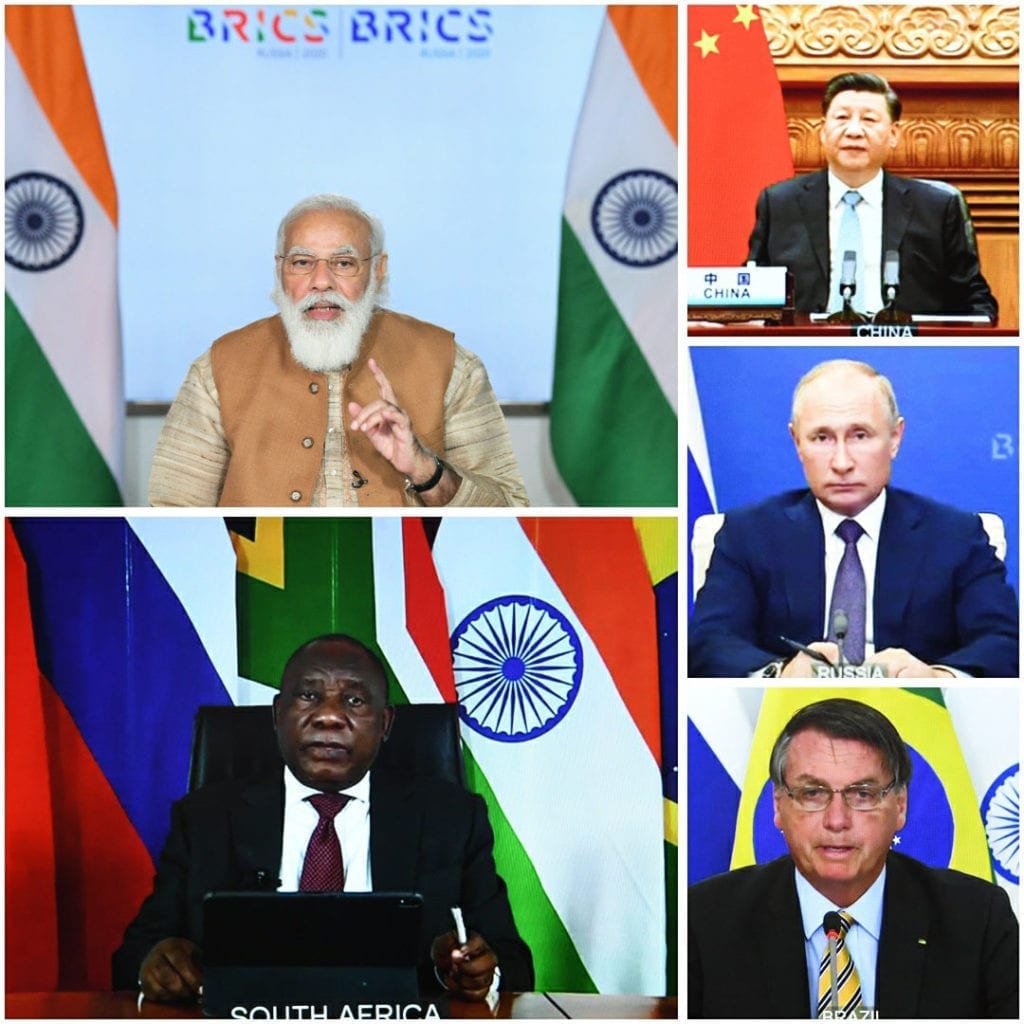This November marks the 20th anniversary of the BRIC acronym, first proposed by analyst Jim O’Neill, describing the economic potential of Brazil, Russia, India and China. What predictions exist today regarding the forum of the leading states with developing economies? How has the dynamics of the association changed in recent years?
For the first time in the analytical note of the Bank “Goldman Sachs” in November 2001, the author of which was Jim O’Neill, the abbreviation BRIC was introduced (B – Brazil, R – Russia, I – India, C – China). Despite the frequent interpretations of “Building Better Global Economic BRICs”, the main idea of the article was not to predict the continuous economic growth of the above countries or to present the attractiveness of a new integration model. O’Neill‘s obvious conclusion was that the likely growth in the share of the BRIC economies in world GDP will have important consequences for the entire system of global governance.
Referring to this note, it is worth remembering that 2001 was the third year after the introduction of the euro, and the author tried to analyze the validity of the argument that such large European countries as France, Germany and Italy should be represented in the G7, the International Monetary Fund (IMF) and other organizations jointly, not unilaterally. Thus, according to this logic, space is made available for new economic players. In his work, Jim O’Neill proposed four different development scenarios, analyzing what the world economy might look like in 2010. Moreover, in any case, it was assumed that the share of the BRIC countries in world GDP will increase.

Summing up the first decade, it is quite obvious that the period of 2000-2010 for the BRIC countries, it turned out to be even better in absolute and relative terms than O’Neill had planned. Nonetheless, there was hardly any noticeable transformation in global governance structures prior to the 2008 financial crisis. Although the G20 Summit was founded in 2008, there have been some reforms at the IMF and the World Bank, global change required a real economic disaster.
In connection with the accession of South Africa to the BRIC countries on February 18, 2011, the abbreviation acquired another player – BRICS, and these five states formed a new “geopolitical club”. A number of analysts note that despite the fact that such a development of events strengthened the original concept of integration unification, in the end, much was not achieved. Experts believe that since then there has been no significant progress within the framework of overall global governance, even in the face of a pandemic that erupted around the world in 2020.
To date, all GDP figures for 2020 for all countries have not yet been published, however, it can already be predicted that in most regions real and nominal GDP will be noticeably lower than in 2019, and speaking of such participants in the forum of leading states with developing economies like Brazil, India and Russia are significantly smaller. In the case of the BRICS, an exception may be China, where GDP is projected to grow by 5% on average, and as a result, such growth against the background of the fight against COVID-19 will further increase its share in world GDP.
Saying goodbye to his post, on January 19, the US Secretary of State Michael Pompeo thanked the leaders of Brazil and India for their help in discrediting the BRICS. On his Twitter account, Pompeo wrote: “Remember BRICS? Well, thanks to Jair Bolsonaro and Narendra Modi, the B and the I both get that the C and the R are threats to their people”. Over the past four years, Pompeo has been one of the outspoken critics of Beijing and Moscow.
The former Secretary of State took every opportunity to highlight China’s human rights violations against Uyghur Muslims and other ethnic minorities. Pompeo was on the front line of the White House’s struggle with China and Iran. Last month, the US reintroduced a “new package” of sanctions against a number of Russian and Chinese companies that the Trump’s administration said are cooperating with the two countries’ militaries. To date, 58 Chinese and 45 Russian organizations have been blacklisted.

The fight against the dangerous virus and the economic consequences of the pandemic ended the 2011-2020 decade, which, unlike the previous one, turned out to be less successful and fruitful. Analyzing the panorama of the BRICS countries, judging by the data of recent years, it is worth noting that the shares of Brazil and Russia in world GDP have returned to the 2001 level. Despite the fact that India is the fifth largest economy in the world, this Asian country has gone through several very difficult years. As for China, which has made significant progress over the past decade, with a nominal GDP of over $ 15 trillion, the Chinese economy is on average 15 times larger than in 2001.
According to analysts, today the economy of China is three times the size of the economies of Germany and Japan, and almost five times the size of the economies of India and the UK. The Celestial Empire is reaching the level of 75% of the US economy and in the coming decade has every chance of becoming the largest in the world (speaking in nominal terms, since the Chinese economy has already reached this status in terms of purchasing power parity).
The question of 2001 “What does the world community really need?” still remains open. Despite the fact that the past decade turned out to be difficult and disappointing for such members of the integration association as Brazil and Russia, the forecast remains that in the new decade the BRICS group will be economically able to transform itself into a “G7” in scale. If international trade is restored and investment and financial flows between the BRICS countries and the world as a whole continue, then such growth could benefit everyone.
In the new decade, many aspects of the geopolitical balance of power will depend directly on who can demonstrate the political leadership necessary to strengthen the system of international governance. Regarding this issue, the second decade of the BRICS has become quite controversial. Today, relations between the West, on the one hand, and China with Russia, on the other, are very tense, although the conclusion of an investment agreement between the EU and China at the end of last year gives hope for a partial change in mood in this dialogue.


